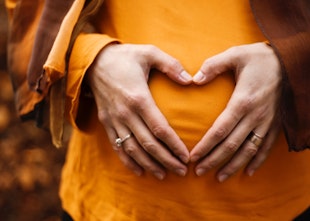One statistic, which is very often used, is “1 in 3 women over 35 will
not conceive within the first year of trying”.
But where exactly has this statistic come from? Research done in San Diego State University found that this statistic is based on research done in the 1700s!!
Although this research is 300 years old, it does have one big advantage! The women were not using effective methods of
contraception then!
Nowadays, research is more difficult to obtain when most women are or have been on some form of contraception. "It is difficult to draw conclusions about age and
fertility from modern populations where birth control is widely used," researchers explained.
But there are some studies which have looked at modern couples, and these do paint a rather different picture.
An interesting study from 2004 found that 82 percent of women aged between 35 and 39 fell pregnant within a year. That's significantly better than the two-thirds chance drawn from the 300-year-old birth records.
But can we be confident it's more accurate?
Yes, says David James, of the UK's National Institute for Health and Care Excellence (Nice) fertility guideline development group.
"It was a single study undertaken relatively recently of about 780 women, in seven different European centres. The important point about was that these were women who were trying to conceive" thus making the statistics "much more realistic".
The main problem with the historic data is that the women may not have been actively trying to conceive.
Indeed, they may have been actively trying to avoid becoming pregnant. They may not even have had intercourse.
Another finding of the study was that, while fertility declines with age, it does not appear to do so as quickly as we have been led to believe.
Among women aged 27-34, the study showed that 86 percent will have conceived within a year of trying. So the 82 percent figure for women aged 35 to 39 is only a little lower.
After that, the picture is a little less clear but there is evidence that female fertility is improving.
The latest update of the NICE guideline on fertility recognises that "the chances of women naturally conceiving at the age of 40 are much higher now than they were when the original guideline was written (in 2004)."
But what about the risk of chromosomal abnormalities, such as Down's syndrome?
Down’s Syndrome is caused by an extra copy of chromosome 21. Studies show that the chance of having a baby with Down's syndrome increases with age, but can be born to mothers of all ages.
One baby out of every 546 births in Ireland is born with Down's syndrome. About 750 babies born with the condition each year in the UK, according to NHS figures. And about 6,000 in the USA.
Research shows, the chance of any chromosomal abnormality at the age of 20 is one in 500.
That increases to one in 400 at the age of 30, and one in 60-70 at age 40.
But, turning that on its head, it does mean that 59 out of 60 women aged 40 will have no chromosomal problems in their baby at all!
So while it's harder for older women to get pregnant, and the chance of a chromosomally abnormal child increases, these problems do not increase as sharply as we feared - except maybe for those trying IVF or artificial insemination.
Certainly, those statistics are discouraging for older women. The difference in success rates in IVF between your early 30s and your late 30s is a lot bigger than the difference in success in natural conception.
Similarly, with artificial insemination, the research shows that the success rates are not as high as natural conception rates and can differ by as much as 20 percentage points.
But many fertility problems that women over 30 experience have nothing to do with age. Had they tried to conceive in their 20s, they would have also faced difficulties.
Laura Doyle, mum of 4. Kyle 9, Noa Belle 4, Briar 2 and Milla 12 months. Breastfeeder, co-sleeper, coffee drinker. Staying positive and inspired inthe chaos of it all. Writer and blogger at www.lovelifeandlittleones.com.






